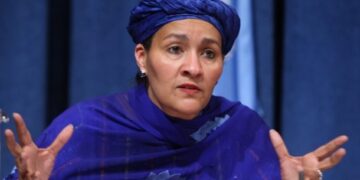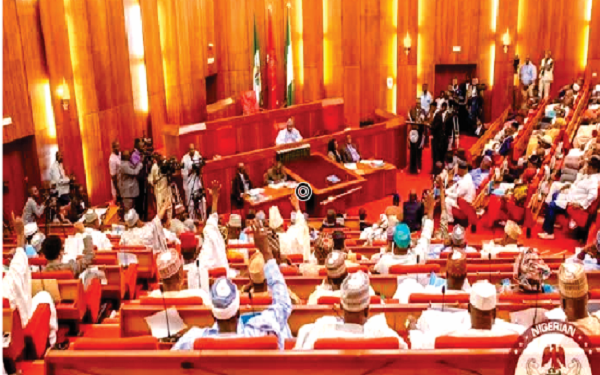The Nigerian Senate has denied claims that lawmakers in the Red Chamber receive N21 million monthly in salaries and allowances. Senate spokesperson Yemi Adaramodu (Ekiti South) clarified this on Thursday, responding to statements made by Senator Sumaila Kawu.
In an interview with the British Broadcasting Corporation (BBC) Hausa Service on Wednesday, Senator Kawu claimed he earns a total of N21 million monthly, including salaries and allowances. He mentioned that his “monthly salary is less than N1 million, and after deductions, the figure comes down to a little over N600,000.” He further explained that “with the increase in the Senate, each Senator gets N21 million monthly as running costs.”
In a personally signed statement, Adaramodu emphasized that running costs are separate from the salaries and personal allowances of lawmakers, which are set by the Revenue Mobilisation, Allocation, and Fiscal Commission (RMAFC). Earlier, RMAFC Chairman Mohammed Shehu stated that each Senator receives a monthly salary and allowances totaling N1,063,860.
Adaramodu clarified that running costs are not unique to the legislature and are essential for the operation of their offices. He stressed that “such funds are retired by relevant officers after being used for official purposes and proof of genuine expenditure.”
Expressing concern over narratives of wasteful spending by parliament, Adaramodu stated, “The Nigerian Senate is an assembly of accomplished and successful professionals, administrators, and captains of industry, who are not driven by these often-touted egregious pecuniary bits, but rather by their patriotic zeal in the nation’s quest to breathe life into Nigeria’s political and socio-economic dry bones.”
He added, “For the umpteenth time, the Senate is compelled to respond to obsolete allegations of phantom salaries and personal emoluments spuriously credited to Senators monthly. The Revenue Mobilisation Fiscal Allocation Commission, the agency of government that fixes political officials’ salaries and allowances, has duly disclosed the monthly personal take-home of Senators.”
Adaramodu further explained, “However, all arms of government and their personnel—governors, ministers, permanent secretaries, Directors-General, state commissioners, and even boards and parastatals, including local government councils—run their activities with running costs, and the National Assembly is no exception. The funds referred to by Senator Kawu Sumaila are neither his salary nor personal allowance.”
He elaborated that these funds are allocated for the daily operation of Senators’ offices, including constituency office staff, oversight functions, and community engagements. “These funds are not static; they are provided for in the annual budget and must be retired with proof of genuine expenditure. They are not personal allowances or salaries for legislators.”
In conclusion, Adaramodu noted, “The National Assembly receives about 1% of the federal budget and has never exceeded this, even in times of widespread financial constraints. The Nigerian Senate is an assembly of accomplished professionals, administrators, and industry leaders, motivated by patriotic zeal, not by financial gain.”
4o























